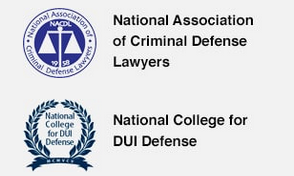Cocaine Distribution
Drug Crime Lawyer Helping Defending Phoenix Residents
Cocaine is also known as coke. It’s a powerfully addictive drug made from coca plant leaves. Sometimes it’s mixed with non-addictive substances like talcum or flour, but in other cases, it’s mixed with fentanyl or amphetamine. Arizona considers cocaine a dangerous drug, and Arizona cocaine distribution laws are harsh. They are particularly harsh under certain circumstances, such as when a minor is the one buying the cocaine or where the cocaine is distributed in a school zone. If you’ve been charged with a crime related to this drug, an experienced Phoenix cocaine crime attorney can help you identify potential defenses.
Cocaine Distribution
Often possession of cocaine is a class 4 felony. If you’re caught with less than 9 grams, it is still a serious arrest, but the prison time is likely to be less significant, particularly for a first offense. In Arizona, if someone is granted probation, it will involve at least 350 hours of community restitution with a drug abuse or alcohol treatment organization. However, 9 grams of cocaine is a threshold amount, such that if you have more than that amount of cocaine, you’ll be treated as a drug trafficker. This can result in significant prison time.
On the other hand, when you are caught with more than the threshold amount, cocaine distribution will probably be charged as a class 2 felony. The presumptive sentence for a first offense class 2 felony is 5 years, while the mitigated sentence is 5 years. The maximum sentence is 10 years while the aggravated sentence is 12.5 years. In other words, when there are aggravating factors such as distribution to a minor or the involvement of weapons, you could very well face 12.5 years in prison. Having prior felony convictions can lead to even greater penalties.
Generally, the greater the amount over the threshold amount you possess or sell, the longer the prison term to which you are likely to be sentenced. The court tends to believe that if you had a large amount of cocaine, you possessed the cocaine in order to sell or distribute. A seasoned drug crimes lawyer can help you navigate criminal charges of this nature and develop a defense strategy.
Defenses
It may be possible to defend against cocaine distribution charges by showing that your constitutional rights were violated in the search and seizure that resulted in the police finding cocaine. Under the Fourth Amendment, you have a right to be free from unreasonable searches and seizures, and if the police illegally searched your home, car or office and thereby found the cocaine that forms a basis for your distribution charge, it may be possible to get that evidence suppressed. Where police failed to advise you of Miranda rights prior to custodial questioning that resulted in answers that were incriminating, it may be possible to get those answers suppressed. Other procedural violations can also be the basis for a strong defense such as police failure to abide by appropriate procedures for a wiretap of the phone or lab analysis of the cocaine.
Police commonly rely on confidential informants as a way of locating drug traffickers. The police officer usually includes the information gleaned from a confidential informant on an arrest warrant application. Sometimes, it is possible to secure a dismissal by showing that the warrant shouldn’t have been issued because the informant didn’t have a history of giving reliable information, or there wasn’t enough of a reason for the officer to believe the informant was reliable.
Consult a Cocaine Crimes Attorney in Phoenix
Cocaine distribution charges are serious. The stigma associated with a conviction for this offense may follow you around when you look for a job or a home to rent. If you are facing charges for cocaine distribution, experienced lawyer James E. Novak can evaluate your case and help you understand your legal options. Mr. Novak is a former prosecutor who represents defendants charged with crimes related to selling, transporting, and possessing cocaine and other drugs throughout the Phoenix area including Mesa, Gilbert, Chandler, Scottsdale, and Maricopa County. Contact him at (480) 413-1499 or via our online form.






















